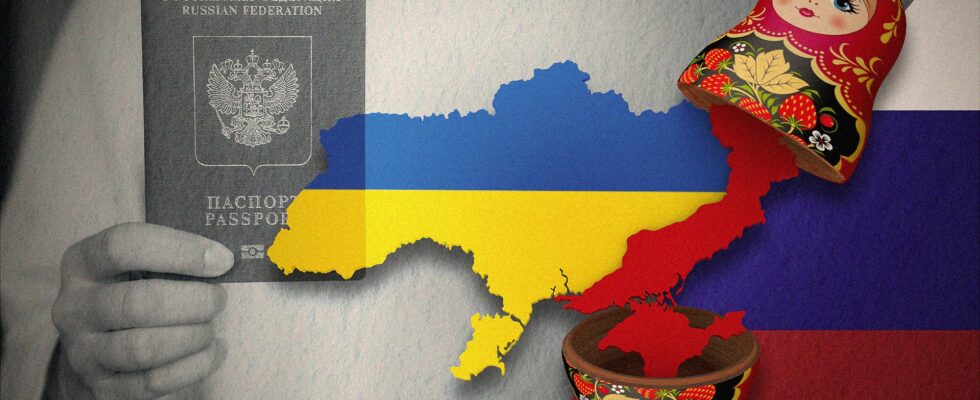Propaganda, education, institutions, tortures: for months, the Express correspondent in the region, Clara Marchaud, harvested the testimonies of traumatized Ukrainians. Accompanied by the analysis of sociologist Anna Colin Lebedev, specialist in post-Soviet societies, she takes us into her reports at the heart of a Ukraine worried about possible negotiations.
Find all the episodes of the magnifying glass
Listen to this episode and subscribe to the magnifying glass on Apple Podcasts,, Spotify,, Deezer,, Podcast Addict And Amazon Music.
The team: Charlotte Baris (presentation and writing) Jules Krot (editing and realization)
Music and dressing: Emmanuel Herschon/Studio Torrent
Logo: Benjamin Chazal – Getty Images – Ffeller (Sketchfab)
How to listen to a podcast? Follow the leader.
Charlotte Baris: In the previous episode, you discovered how the Russians installed their power in the occupied regions. Today, with Clara Marchaud, the correspondent of L’Express in Ukraine, we will try to understand what the daily lives of the inhabitants who have remained in these territories looks like.
You will also hear the analysis of Anna Colin Lebedev, lecturer in political science at Paris Nanterre University, specialist in Russia and post-Soviet Ukraine. For some testimonies, the voices and first names have been changed for security reasons. I remind you that these stories can be difficult to listen to …
To go further:
Dmitry Glukhovsky: “Vladimir Putin suffers from impostor syndrome”
Pierre Bentata: “Emmanuel Todd puts his hatred of the United States as a scientific fact”
Anne Applebaum: “If something happens to Putin tomorrow …”
